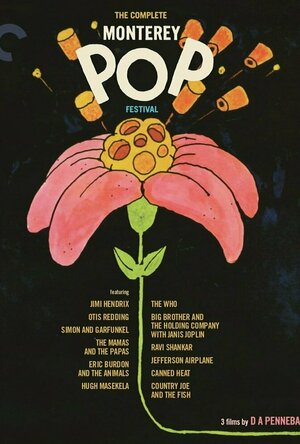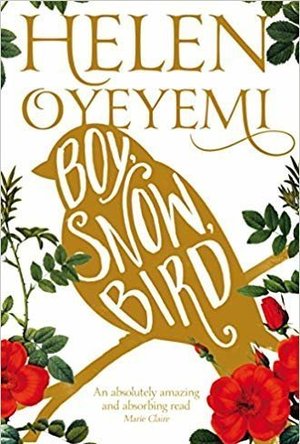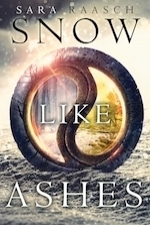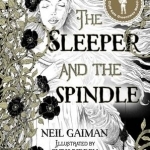
The Sleeper and the Spindle: Winner of the Cilip Kate Greenaway Medal 2016
Book
A thrillingly reimagined fairy tale from the truly magical combination of author Neil Gaiman and...
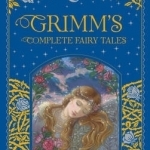
Grimm's Complete Fairy Tales
Arthur Rackham and The Brothers Grimm
Book
Grimm's Complete Fairy Tales collects more than two hundred tales set down by Jacob and Wilhelm...
John Taylor recommended Monterey Pop (1968) in Movies (curated)
Whatchareadin (174 KP) rated Boy, Snow, Bird in Books
May 10, 2018
Quickly, Boy made friends and met a man, Arturo Whitman. Arturo has a daughter named Snow, who the whole town adored. Shortly after Arturo and Boy are married, she becomes pregnant. When she gives birth to her daughter, Bird, the Whitman family secrets soon come to light.
There is an underlying theme in this book with mirrors. The women claim that they do not "see" themselves in them. Is it because they are ghosts? Or is it that their family secrets run so deep that they find it hard to see themselves as they really are?
This book reminded me of books I had to read for school. I enjoyed the storyline as a whole, but reading it, I felt as though there were questions I was supposed to be searching the answers for instead of just enjoying the book. There are so many secrets throughout the entire book with the biggest secret coming at the end. Told in three sections by Boy, Bird, and then Boy again, this is very interesting story about race in the north in the 50's and 60's.
Whatchareadin (174 KP) rated Boy, Snow, Bird in Books
Apr 3, 2019
Quickly, Boy made friends and met a man, Arturo Whitman. Arturo has a daughter named Snow, who the whole town adored. Shortly after Arturo and Boy are married, she becomes pregnant. When she gives birth to her daughter, Bird, the Whitman family secrets soon come to light.
There is an underlying theme in this book with mirrors. The women claim that they do not "see" themselves in them. Is it because they are ghosts? Or is it that their family secrets run so deep that they find it hard to see themselves as they really are?
This book reminded me of books I had to read for school. I enjoyed the storyline as a whole, but reading it, I felt as though there were questions I was supposed to be searching the answers for instead of just enjoying the book. There are so many secrets throughout the entire book with the biggest secret coming at the end. Told in three sections by Boy, Bird, and then Boy again, this is very interesting story about race in the north in the 50's and 60's.

200 Fairy Tales for Kids - The Most Beautiful Stories for Children
Lifestyle
App
——————————————— 200 Fairy Tales for Kids...
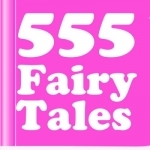
Fairy Tale Catalog - Big Book of 555 Fairy Tales
Catalogs
App
The first fairy tale catalog, including 555 stories - nearly all fairy tales that have ever been...
Goddess in the Stacks (553 KP) rated Snow like Ashes in Books
Oct 9, 2018
A little backdrop is needed. In Meira's land, there are eight countries. The Rhythm countries, where seasons proceed as normal, and the Seasons - 4 countries locked in one season each. The rulers of each country have a magic conduit that lets them feed magic to their people - but the conduits are gender-locked. In four of the countries, only women can use the conduit; in the other four, only men. Meira and her little band are all that's left of the free people of Winter. Spring invaded sixteen years ago, killed Winter's queen, broke the locket that was their magic conduit (each ruler has one) and enslaved their people. Because the queen only had a son, he can't wield Winter's magic anyway. They're still trying to find the two pieces of the locket so when he has a daughter, she can wield it. You'd think at this point, since he's of age, he should be trying to get as many women pregnant as possible to up the odds of getting a royal heir who can wield the magic, but that...doesn't come up.
The book does delve into the country's people being oppressed, used as slaves, and being incredibly abused by the conquering country, and this is where I ran into a quandary. The Season's people reflect their countries: Autumn's people have copper skin, Spring's citizens are blond-haired and green-eyed - and Winter's people are white. Pale skin, snow-white hair, blue eyes. Writing white people as the oppressed people just rubs me the wrong way. (In that false "help I'm being oppressed because other people want equal rights!" kind of way.) Yes, this is fantasy, yes, it has nothing to do with our world's politics - but it bothers me. It's at least not white-savioring, as Meira's trying to save her own people, but I don't know. Is it better or worse to write white people as the oppressed protagonists?
That question aside, this was a well-written novel of fighting against an oppressor. There is definitely still work to be done at the end of the book, and there are two more books, as well as two short stories. While I am a little curious what ultimately happens, I don't know if the series has earned more time on my reading list.
You can find all my reviews at http://goddessinthestacks.com
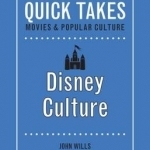
Disney Culture
Book
Beginning with basic black and white drawings of Oswald the Lucky Rabbit and Mickey Mouse in the...
ArecRain (8 KP) rated Snow's Seduction (A Snow White Werewolf Tale, #1) in Books
Jan 18, 2018
I love friends to lovers stories, especially childhood friends. I would like to say I enjoyed the premise to this story but honestly I thought it was stupid. I wish I had better word but there it is. Now you may be saying but you knew that going in! Honestly, I was hoping it was going to be a menage. I guess it was just wishful thinking, because what I got instead was the age old hey let me ask my male friend how to seduce this other male but wait my friend wants me trope.
All in all, definitely worth the read.
